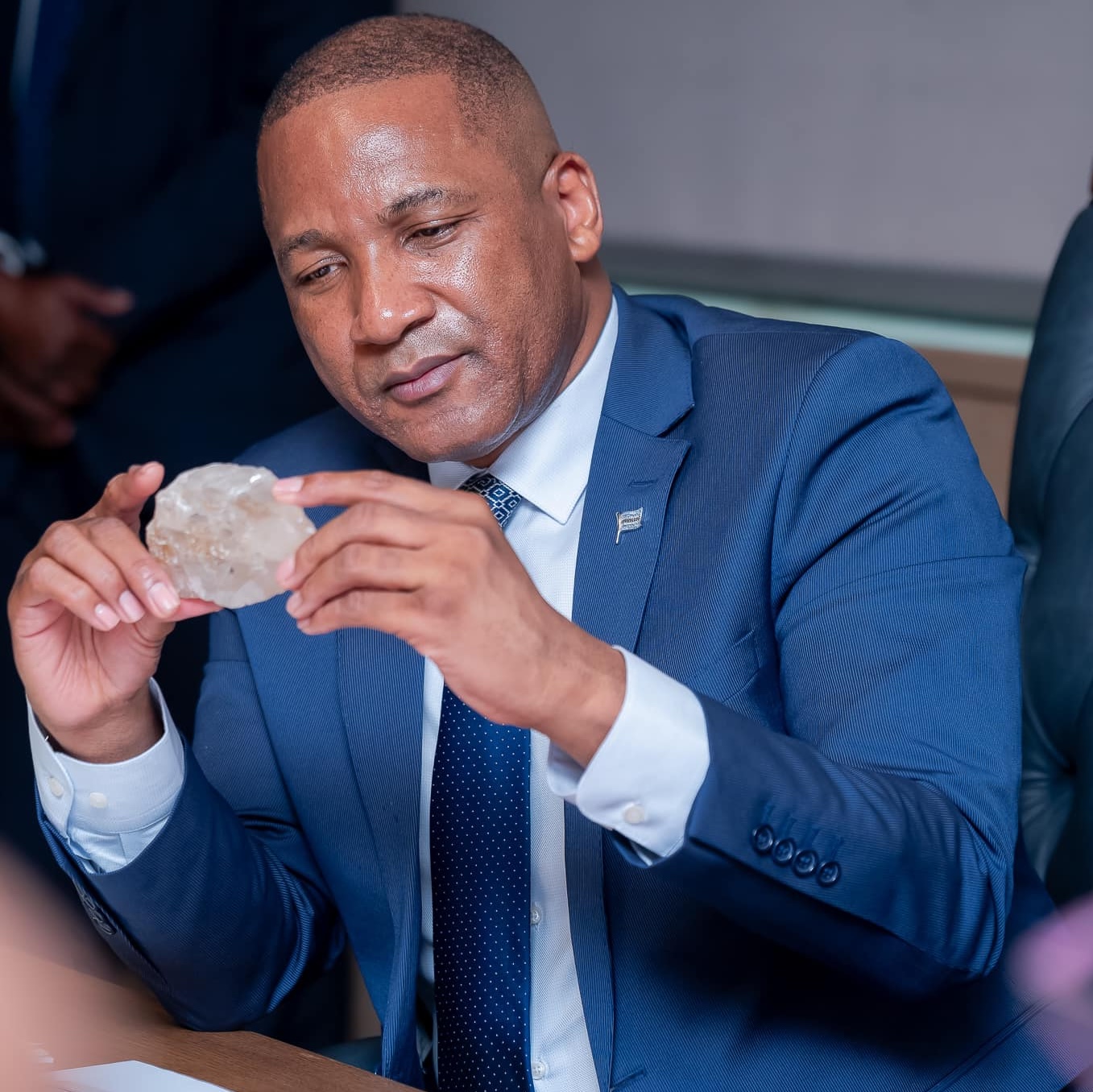The diamond industry, long a cornerstone of Botswana’s economy, is facing turbulence as global demand for rough diamonds wanes. De Beers, the world’s largest diamond company and a key player in Botswana’s diamond sector, is sitting on a staggering $2 billion inventory of unsold diamonds, the largest stockpile since the 2008 financial crisis. With declining demand impacting the global diamond market, Botswana’s positioning in this evolving landscape is more critical than ever.
A Tough Year for Diamonds
“It’s been a bad year for rough diamond sales,” admitted De Beers CEO Al Cook, reflecting the challenges the diamond sector has faced in 2024. The slowdown in demand for natural diamonds has left the market saturated, causing stockpiles to grow. The $2 billion inventory underscores the mounting pressure on diamond producers to navigate this slump while maintaining their market relevance.
Botswana’s High-Stakes Negotiations
Despite the tough market conditions, Botswana remains a vital player in the global diamond industry, thanks to its lucrative partnership with De Beers through the Debswana Diamond Company. This joint venture, equally owned by De Beers and the Botswana government, is responsible for producing some of the finest diamonds in the world.
Negotiations between De Beers and Botswana’s government over a new diamond sales pact are nearing a conclusion. Al Cook expressed optimism, stating, “We see negotiations concluding in days and weeks, not months and years,” following his meeting with Botswana’s new President, Duma Boko.
The anticipated agreement is expected to significantly reshape Botswana’s share in the diamond trade. Under the terms of a previous deal agreed upon last year, Botswana’s share of diamonds from the Debswana joint venture will gradually increase to 50% over the next decade, up from the current 25%. This move reflects Botswana’s push for greater control and benefits from its natural resources.
Botswana’s Strategic Position
Botswana has long been hailed as a model for leveraging its diamond wealth to drive socioeconomic development. The country’s insistence on renegotiating its partnership with De Beers underscores its strategic positioning in the global diamond market. By increasing its share of diamonds, Botswana aims to maximize the economic benefits derived from this precious resource.
However, the current downturn in demand poses challenges. A saturated market could limit Botswana’s ability to capitalize on its increased share of diamond production. This makes it crucial for the country to diversify its economy while maintaining its leadership in diamond production and trade.
Looking Ahead
As negotiations with De Beers near their conclusion, Botswana faces a delicate balancing act. The country must secure a favorable agreement that ensures greater returns from its diamond wealth while navigating the uncertainties of a declining global market. President Duma Boko’s administration has an opportunity to strengthen Botswana’s position as a global diamond powerhouse, ensuring that the industry continues to contribute meaningfully to the country’s economic growth.
For De Beers, these negotiations come at a time when the company is grappling with its largest stockpile in over a decade. The outcome of these talks could set a new precedent for how resource-rich countries engage with global corporations in the pursuit of equitable partnerships.
While 2024 may have been a challenging year for diamonds, the decisions made in the coming weeks will shape Botswana’s future and its role in the diamond industry for years to come.










